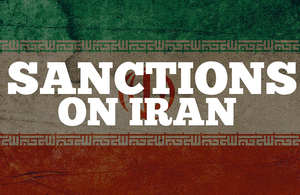Al-Monitor — The Biden administration on Thursday imposed sanctions on an intelligence branch of Iran’s paramilitary Islamic Revolutionary Guard Corps and other actors involved in the wrongful detention of Americans overseas, senior US officials said.
The sanctions target the IRGC Intelligence Organization (IRGC-IO), which US officials say frequently holds and interrogates detainees at Evin prison, the sprawling detention center in northern Tehran believed to hold thousands of inmates, including foreign nationals used by Iran to extract concessions from the West.
The Treasury Department also imposed sanctions on IRGC-IO commander Mohammad Kazemi and three of the group’s senior officials it said were linked to the detention of Americans and other foreigners. Kazemi, who took charge of the IRGC-IO in June 2022, was already under sanctions imposed in October for his role in the crackdown on Iran’s peaceful protest movement.
In addition to the detention of foreign prisoners, the department said sanctioned counterintelligence official Ruhollah Bazghandi was involved in the IRGC-IO’s operations in neighboring Syria as well as assassination plots against journalists, Israeli citizens and other perceived enemies of Iran.
As part of the tranche of sanctions unveiled Thursday, the administration also designated Russia’s Federal Security Service, known as the FSB, for its role in the arrest, investigation and detention of US nationals.
The designations were the first issued under an executive order signed by President Joe Biden in July 2022 that directs federal agencies to impose financial and travel sanctions on those responsible for hostage-taking or wrongful detentions.
The order builds on the Robert Levinson Hostage Recovery and Hostage-Taking Accountability Act, a 2020 law named for the former FBI agent believed to have died in Iranian custody. The Levinson Act codified former President Barack Obama’s overhaul of US hostage policy in 2015 after the gruesome killings of several Americans held by the Islamic State.
In a call with reporters Thursday, senior Biden administration officials described the new measures as the first of multiple rounds of sanctions aimed at promoting accountability for the hostage-taking of US citizens.
“Our action is a warning to those around the world who would wrongfully detain US nationals about the potential consequences of their actions,” an official said.
The officials said the administration does not believe ongoing efforts to bring home Americans will be set back by the new sanctions, which come more than two years after Washington began indirect talks with Tehran over a possible prisoner exchange.
Iran is currently holding three dual US-Iranian citizens — Siamak Namazi, Emad Shargi and Morad Tahbaz — as well as several US residents. After more than six years in Iranian custody, Namazi’s father, Baquer Namazi, was freed from house arrest in October 2022.
The Iranians claim they are ready to strike a prisoner-swap deal, reportedly in exchange for the release of billions of dollars of Iranian assets that are frozen abroad under US sanctions.
The Americans detained in Iran are among the 53 US nationals wrongfully held abroad whose cases are publicly disclosed, according to the James W. Foley Legacy Foundation, a hostage advocacy group named for the slain journalist.
Many of those families see an audience with Biden as critical to bringing their captive relatives home. This week, the “Bring Our Families Home Campaign,” a group made up of Americans whose loved ones are wrongfully held, urged Biden to take a meeting with them.
“Though we hear time and time again from your administration that they are your highest priority, we will not believe it until we meet with and hear it directly and personally from you,” the wrote in a letter sent to Biden Monday. “Having a loved one held hostage is hard enough without having to also campaign for your attention.”
Biden has met with some but not all families whose loved ones are detained. Despite repeated requests, those with relatives imprisoned in Iran have not been granted an Oval Office meeting.
Asked about the criteria for such meetings, a senior Biden administration official said the president “can’t do everything” and that the work to free Americans overseas “continues regardless of any presidential meeting.”
 Shabtabnews In this dark night, I have lost my way – Arise from a corner, oh you the star of guidance.
Shabtabnews In this dark night, I have lost my way – Arise from a corner, oh you the star of guidance.



